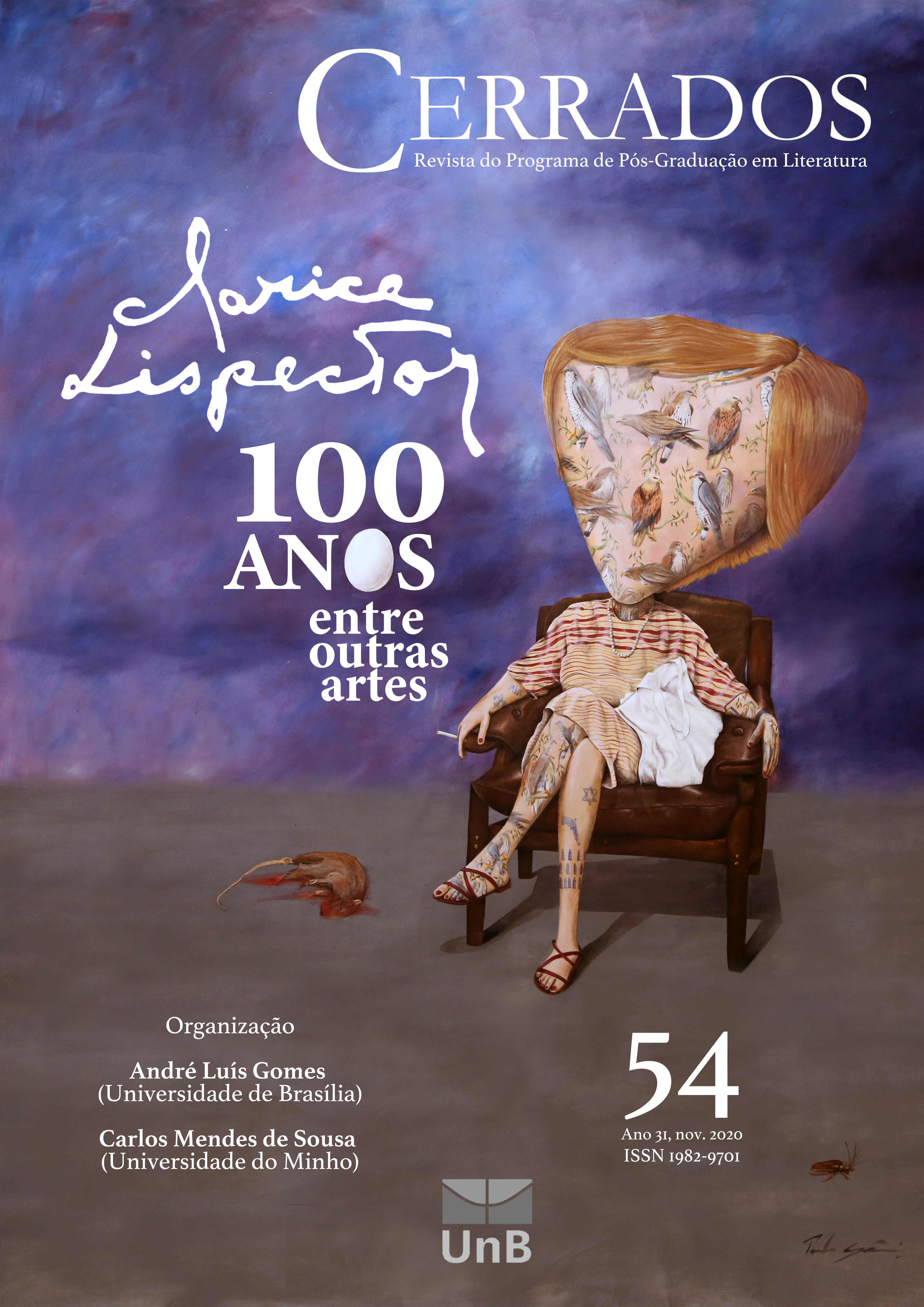Português
DOI:
https://doi.org/10.26512/cerrados.v29i54.32050Keywords:
PortuguêsAbstract
Clarice Lispector, one of the greatest Brazilian writers of the century XX, was accused several times, during its fruitful literary career, of not dealing with social subjects in her writings. This makes emblematic her choice, made in a television interview granted in 1977, the year of her death, of the chronicle “Mineirinho” as her favorite work. In the chronicle, the writer exposes her indignation against the murder of a criminal in the hills of Rio de Janeiro, on May 1st, 1962, by truculent police action, composing a burning libel in favor of human rights. Based on this approach, we will seek, in the present work, to identify the correlations between the Claricean revolt screaming and theories of punitive law, prescribers of punishing regimes of exception for the “enemies” of the State and society, as well as with the sociological notion of “necropolitics”, conceived by Cameroonian philosopher Achile Mbembe.
KEY WORDS: Clarice. Mineirinho. Enemy’s criminal law. Necropolitics.
Downloads
Downloads
Published
How to Cite
Issue
Section
License
Copyright (c) 2020 Revista Cerrados

This work is licensed under a Creative Commons Attribution 4.0 International License.
Proibida a reprodução parcial ou integral desta obra, por qualquer meio eletrônico, mecânico, inclusive por processo xerográfico, sem permissão expressa do editor (Lei n. 9.610 de 19/2/1998 )



